I am instantly in the dirt, sliding down the slope to the cafe on my bum, much to the amazement of our guide. He has doubtless seen hundreds of walkers fall but none before the proper walking had begun and certainly not with such wild abandon.
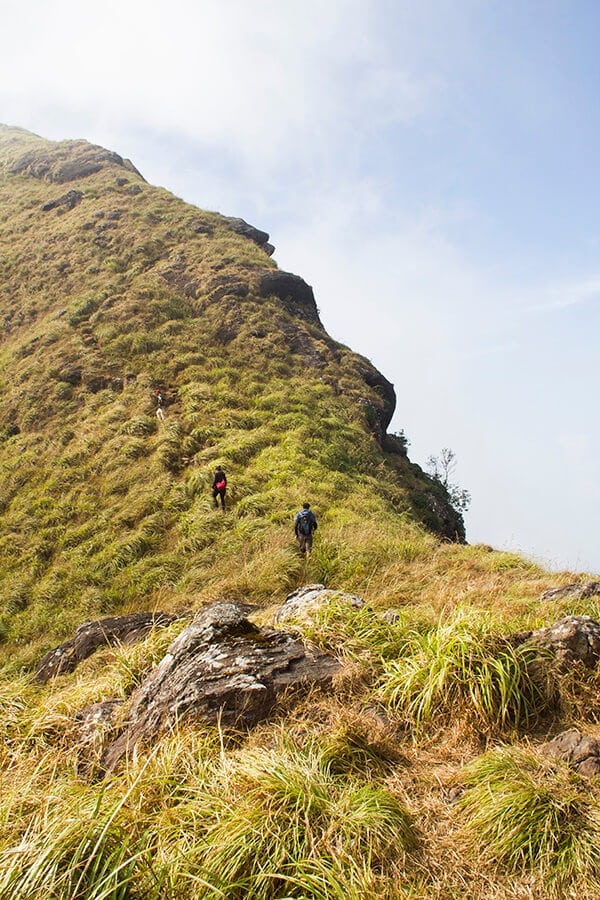 I make a vague attempt to dust myself off but there are more important things to take care of. Never mind wasting energy worrying about falling over at the bottom of the mountain, all energy is to be put into getting myself up the mountain.
I make a vague attempt to dust myself off but there are more important things to take care of. Never mind wasting energy worrying about falling over at the bottom of the mountain, all energy is to be put into getting myself up the mountain.
I’m about to climb 2100m. Although this won’t land me a place in the Guinness Book of Records, it is noteworthy as a year ago I would have struggled to walk five minutes on the flat.
It wasn’t just walking I struggled with, even doing the dishes or having a shower were like mountain climbs, trying to concentrate on what someone was saying, or trying to read something, a painful and confusing mental effort.
The illness was unlike anything I’d experience before. It was like the weak, empty muscles feeling of a virus, the rejecting stomach of a bug, the throbbing head of a hangover and the confusion and exhaustion of insomnia all rolled in to one. On top of this were a whole range of strange ‘side-show’ symptoms and the feeling that something was really very wrong. It was uniquely unpleasant and doggedly persistent.
Eventually it was diagnosed as CFS (known more commonly amongst its sufferers as ME). I got googling and got worried. ‘No cure’ ‘severely limited quality of life’ ‘housebound’ ‘bedbound’ ‘controversial’ ‘no cure’. Forums full of sufferers’ horror stories, the range and severity of symptoms made my head spin.
I decided that this didn’t apply to me. I would be better in weeks, not months, let alone years. In the early part of the illness I always expected to feel better ‘in the morning’ and was confused to wake up, after an apparently good night’s sleep, feeling like someone had been hitting my head with a hammer all night and had replaced my muscles with silt.
Getting through a workday was all I could do and even that was becoming difficult. I would crash asleep on the bus on the way home, being sucked down into a heavy sleep that pulled my body down so quickly I felt like I was passing out. I’d crawl into bed and sleep for hours, waking feeling just as bad or worse.
I couldn’t sustain it for long. I was fortunate to have a supportive boss and to work for a big company that knew and respected employment law. I was supported to reduce my hours and work from home, coming into work as much as I was able with a plan in place to slowly increase my office hours. But in the end I decided that my determination to continue working was only prolonging the illness, and with a mixture of trepidation and relief I handed in my notice.
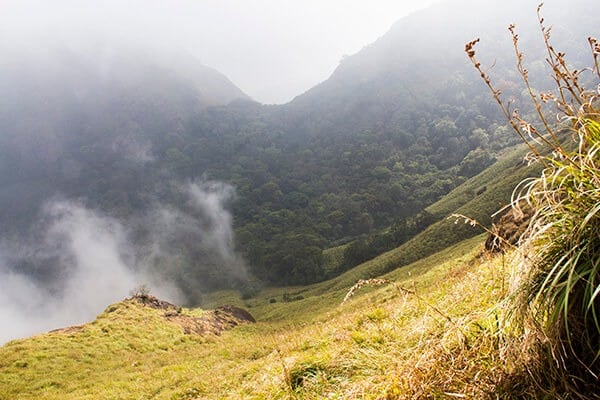
Doctors tried their best to help. Western medicine is incredible and doctors and scientists achieve so much and help so many, but there’s no white-coated ‘ta-da!’ magic when it comes to ME. Research into the illness is massively underfunded and there are still widespread misconceptions about the illness and how best to treat it.
So rather than holding out for the magic pill I launched myself into ancient knowledge and holistic therapies, finding ways of working with the body that didn’t leave the quality of my life in the hands of non-existent research and overworked doctors.
Over the course of a few years I experimented with nutrition, meditation, acupuncture, yoga, kinesiology, NLP, reiki, EFT, visualisation; I devoured books on the power of positivity, the biology of belief, the healing power of mindfulness, the molecules of emotion; I took inspiration and notes from people who had recovered from the incurable, people who had shrunk tumours, ME sufferers who had gone on to be Olympic athletes; I scoured the internet for sources of inspiration and found lots of it – from cheesy self-help to jargon-laden scientific articles. I found an excellent clinic in London – The Optimum Health Clinic – and received so much support and invaluable advice from them. In short, I read about and did as much as I could. My mind and world had opened up and I was in the driving seat.
Yes I tried some weird stuff that has no basis in science (yet… or ever). To me that is a sensible approach. It would be far easier to remain an eye-rolling cynic than to acknowledge that no, we don’t have it all figured out just yet. The joy in stepping out of the western medical arena is that you get to play scientist yourself. You learn that symptoms are feedback as to what is really going on. A symptom is a clue and a red flag, to be listened to and respected, not just an annoyance to be got rid of with a pill.
I mostly did the things I could do cheaply and on my own – meditation, yoga and changing my diet being the key things. As wonderful and powerful as the alternative healing world can be, it can also be a quick and stupid way to empty your wallet – especially if you are looking for a quick fix and for someone else to do the work. The real power comes in taking responsibility for your own health and in working hard to listen to and understand your body. I was fortunate that I had the energy to be able to do this. For many sufferers the symptoms are so strong that they are literally bed bound, imprisoned by this mysterious illness.
My journey, although easier than many, was long, jagged and characterised, as any ME journey is, by huge optimism and crushing disappointment. In the beginning I expected each thing I tried to ‘cure’ me. The end of the illness and the return of my life were always just around the corner.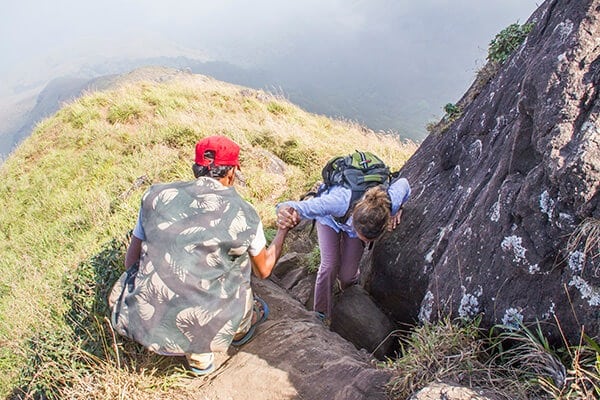
With time and a whole heap of acceptance I did start to improve. Slowly, imperceptibly, I regained enough energy to engage in living and enjoying life again. There were many moments of realising how far I’d come. One of the most significant of those was making it to a yoga retreat. A friend had been to Azul and loved it. She was also on the recovery path but still needed to use a wheelchair if she wanted to get out and about. Her bravery gave me the confidence to take the leap.
I won’t say much about my week at Azul because the fact I was determined to stay longer says it all.
Jamie and Karissa agreed to my staying on in their spontaneous and people-minded way and I started doing casual work in exchange for yoga, food and accommodation. I was overjoyed to be living and working in such a supportive environment. Gradually, with a daily diet of yoga, nutritious food, a warm climate and inspiring, supportive people to bounce off (not least the Azul guests, many of whom are still good friends) I was getting stronger. I regularly had to pinch myself and was always surprised by the brown face in the mirror, thinking ‘is this really happening to me?’ and feeling a rush of gratitude.
Much to my delight what began as a casual work exchange became an official position and I was using my editing, writing and photography experience to help market a business I love.
The next great milestone was moving to an apartment by the beach and living with a Spanish flatmate. I had regained my independence and was indulging in my love of languages. With the fuzzy head that comes with ME I had struggled to string sentences together in English and now here I was chatting over breakfast in Spanish. I made a great group of friends who somehow managed to find the balance between being respectful of my slow recovery and getting me on the dance floor as often as possible.
But I always knew that my journey wasn’t complete and I needed to go to the source of some of the ancient knowledge and practices that had taken me from the ‘no cure’ closed door and set me on a healing path. I needed to go to India.
Armed with tips and advice from Azul instructors Emma and Sally, I boldly set off and tried not to freak out before I even left the airport. I was an experienced traveller but India was new to me and I still wasn’t feeling 100% well. But even if I was feeling fully well, India soon would have sideswiped that with the noise, dirt, pollution, hassle and general craziness. As it turned out the ME was actually an advantage because I’d become used to functioning well despite exhaustion and confusion. A good old kick of adrenaline and a trigger-happy sense of humour helped get me through the early days. Gradually my sensory overload threshold increased to accommodate Indian levels of stimulation.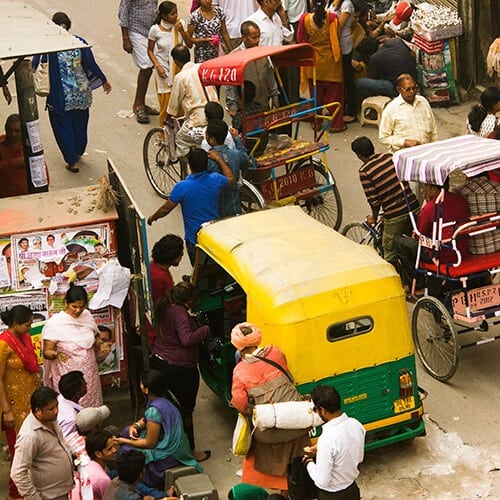
I headed to Rishikesh, Emma’s second home. Attending classes and lectures at a yoga festival and then, after some weeks of adjusting and building energy levels, doing a month long yoga course with Trika school. Far more than the physical study of asanas, I learnt about energy and the chakras, levels of consciousness, yogic morals and ethics, mental control, ayurvedic cleanses – the emphasis always being on self-study and personal experience. I was totally in awe and gained so much from the course.
This was just the start of my Indian adventures and next I headed south, to Sally’s favourite part, Kerala, a state known for its ayurveda and home to a mountain that I had got it in my head to climb.
I was psyched for it, hence my tumbling with wild abandon before even getting going. It had occurred to me in advance that this was a milestone – actually, not just a milestone but perhaps the endstone? I’d read countless recovery stories that ended with someone climbing a mountain or performing some other feat that signalled they were not only back out in the world, but were truly on top of it.
Any thoughts of this being an easy climb culminating in a ‘woo-hoo I beat ME’ moment were laid to rest approximately two minutes into the climb when our rather talkative group fell silent owing to the need to gasp in air.
It was steep. Very steep. Will I be able to do this? The doubt came but was immediately dissolved. Three years of training in ME-bootcamp helped me release any negative thoughts, build my energy, concentrate on the physical sensations, relax and let the blood and energy flow. I felt the first rush of belief and energy and excitement. Of course I can do this. I am doing this.
The guide soon informed us that there were actually seven peaks. This was meant to be reassuring. Luckily they were more like plateaus. We celebrated at each and every plateau, sitting down, admiring the view, taking some time to rest and regain energy for the next big push.
I paid attention to each step and turn, the changing view, the people around me, offering words of encouragement and joking, singing, turning on the inner cheerleader when I felt myself faltering. It wasn’t just a climb to the top. I was loving every part, even the chance to up my game in the tough bits. And in the really tough bits, I just did all I could do, which was to put one foot in front of the other.
I realised the lessons I’d learnt from the illness were being replayed on the climb. With ME, as on a mountain, as in life, you don’t how long the journey will be, how hard it will get and what amazing things you will see and experience along the way. Learning to stay in the moment, even a moment as small as a footstep or a breath, to relax into it, and even enjoy the challenge of the hard bits, the growth that they encourage, makes the journey a lot easier and a lot more enjoyable.
Of course applying this to illness and to life is easier said than done and you don’t have the benefit of a guide telling you ‘this next bit is the worst, after that it gets far easier’. Sometimes it is impossible to see something as an enjoyable challenge. Sometimes all you can do is to keep putting one foot in front of the other and hang on for an easier bit, breathe, stay in the present and accept the energy and support of those around you.
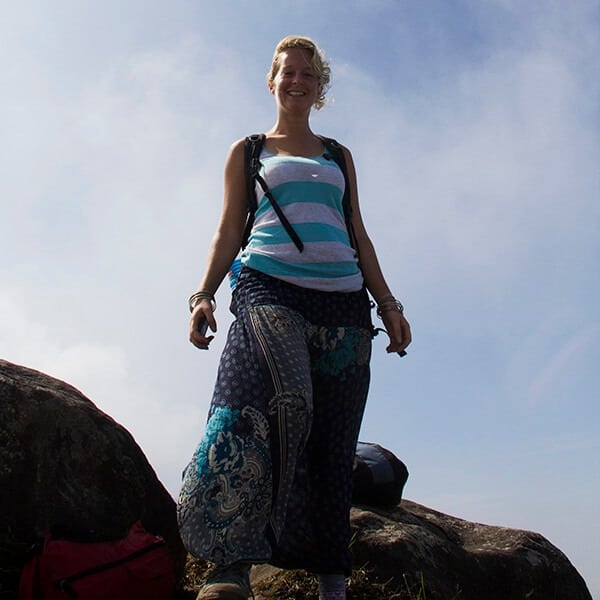 In life there is no peak of the mountain. The journey is the whole point. And this moment, this step, this breath, as hard or wonderful as it may be, is just as much a part of it as any other.
In life there is no peak of the mountain. The journey is the whole point. And this moment, this step, this breath, as hard or wonderful as it may be, is just as much a part of it as any other.
Standing atop the mountain I feel a rush of energy and gratitude. I’m glad I’ve made it to the top. I’m ecstatic I am awake for the journey.
Recommended resources and books for recovery
Everybody is different, every recovery path unique. These are the things that helped me the most…
- The Optimum Health Clinic – clinic based in London with nutrition, psychology and research departments, also particularly recommended is their excellent resource:
- ‘Secrets to Recover’ – podcasts on every aspects of healing, including nutrition, psychology, practical advice, recovery stories
- Meditation Oasis – free meditation podcasts aimed at the general public
- Recovery from CFS: 50 Personal Stories by Alexandra Barton – an inspiring collection of recovery stories, also a good way to gain new ideas for things to try
- Full Catastrophe Living: How to cope with stress, pain and illness using mindfulness meditation by Jon Kabat Zinn – comprises a book and two CDs (with two mindfulness yoga sessions and two guided meditations) based on a 6-week mindfulness meditation course at the University of Massachusetts Medical Centre.
- The Power of Now by Eckhart Tolle – for a deeper understanding of the power and implications of living in the present moment
- How your mind can heal your body by David Hamilton – the science behind visualisation, case studies of its effectiveness as a healing tool, methods of visualisation
- The Biology of Belief: Unleashing the Power of Consciousness, Matter & Miracles by Dr Bruce Lipton – an easy to understand and inspiring book from a research scientist on understanding the link between mind and matter